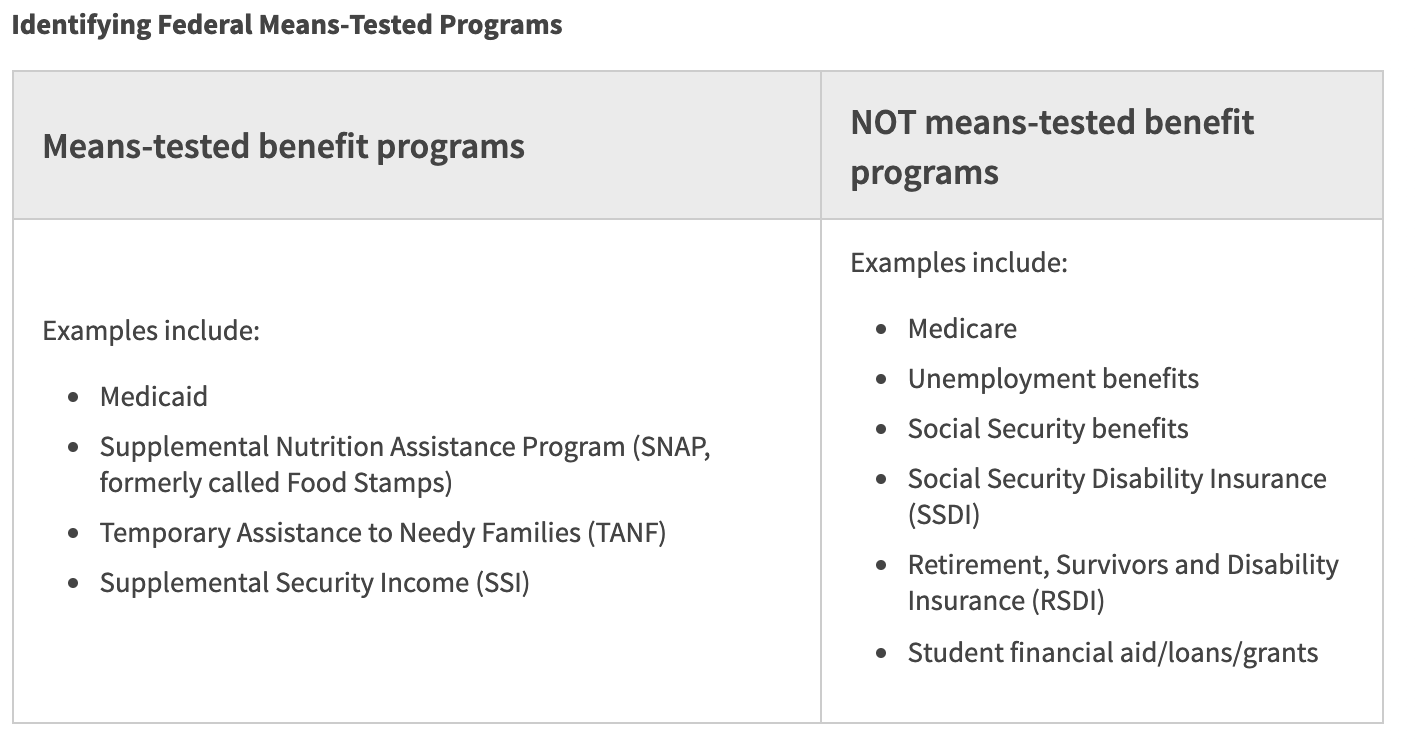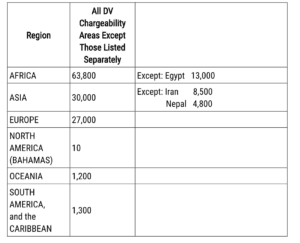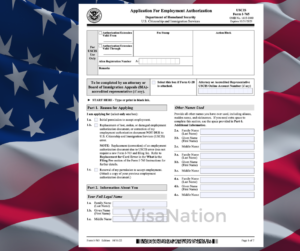Instructions to File I-912 Request for Fee Waiver
Filing fees can quickly add up throughout the immigration process and for those facing financial hardships it can often be an impediment to coming to the United States altogether. Fortunately, there is a way to circumvent some of the service fees if you qualify based on USCIS’ requirements. The I-912, Request for Fee Waiver, is the form you will need to file for USCIS to determine your eligibility. In some cases, USCIS will also accept a letter detailing the request for the waiver along with supporting evidence. If your request is approved by USCIS then you will not be required to pay the filing fees and your application will be processed, however, if it is denied then you will receive a letter from USCIS stating you need to pay the fee in order for your application to be processed.
Who is Eligible for a Fee Waiver?
In order to be eligible for the fee waiver, you must demonstrate:
- You or your spouse is the head of household and currently receiving a means-tested benefit (i.e., Supplemental Nutrition Assistance Program, Medicaid, housing benefits, employment allowance, Supplemental Security Income, etc.)
- Your household income is at or below 150% of the Federal Poverty Guidelines at the time of filing.
- You are facing financial hardship (that can be proven) such as unexpected medical expenses.
- The form you are requesting the fee waiver for is listed below.
Forms Eligible for Fee Waiver
The applications/petitions below are eligible for the fee waiver. Note that you do not need to file Form I-912 for applications or petitions that do not require a filing fee from the start.
- I-90, Application to Replace Permanent Resident Card
- I-129, Petition for Nonimmigrant Worker, only if you are applying for E-2 CNMI investor nonimmigrant status under 8 CFR 214.2(e)(23)
- I-485, Application to Register Permanent Residence or Adjust Status. This qualifies only if you are applying for LPR status based on:
- A category that is exempt from the public charge grounds of inadmissibility of section 212(a)(4) of the Cuban Adjustment Act, Haitian Refugee Immigration Fairness Act;
- Have continually living in the U.S. before January 1, 1972
- Have asylum status or special Immigrant Juvenile status or similar category
- Biometric services fee (with the exception of the biometric service fee require for Form I-601A, Application for Provisional Unlawful Presence Waiver
- I-131, Application for Travel Document (only if applying for humanitarian parole)
- I-191, Application for Advance Permission to Return to Unrelinquished Domicile
- I-192, Application for Advance Permission to Enter as Nonimmigrant (only if you are exempt from the public charge grounds of inadmissibility)
- I-193, Application for Waiver for Passport or Visa (only if you are exempt from the public charge grounds of inadmissibility)
- I-290B, Notice of Appeal or Motion (only if the underlying application was fee exempt, waived or eligible for the fee waiver)
- I-539, Application to Extend/Change Nonimmigrant Status (only if you are applying for a benefit request specified by section 245(l)(7) of the INA or applying for E-2 CNMI investor nonimmigrant status under 8 CFR 214.2(e)(23)
- I-601, Application for Waiver of Grounds of Inadmissibility (only if you are exempt from the public charge grounds of inadmissibility in section 212(a)(4) of the INA)
- I-694, Notice of Appeal of Decision Under Sections 245A or 210 of the Immigration and Nationality Act (only if the underlying application was fee exempt, waived or eligible for the fee waiver)
- I-751, Petition to Remove Conditions on Residence
- I-765, Application for Employment Authorization, unless filing under category (c)(33), Deferred Action for Childhood Arrivals
- I-817, Application for Family Unity Benefits
- I-821, Application for Temporary Protected Status
- I-881, Application for Suspension of Deportation or Special Rule Cancellation of Removal
- N-300, Application to File Declaration of Intention
- N-336, Request for a Hearing on a Decision in Naturalization Proceedings
- N-400, Application for Naturalization
- N-470, Application to Preserve Residence for Naturalization Processes
- N-565, Application for Replacement of Naturalization/Citizenship Document
- N-600, Application for Certification of Citizenship
- N-600K, Application for Citizenship and Issuance of Certificate under Section 322
Additionally, you may receive a fee waiver for any applications/petitions related to your status as the following:
- Battered spouse of a A, G, E-3 or H nonimmigrant (i.e., Forms I-485, I-601 and I-212)
- Battered spouse or child of a lawful permanent resident or U.S. citizen under INA 240A(b)(2)
- T nonimmigrant (i.e., Forms I-192, I-485, and I-601)
- Temporary Protected Status recipient (i.e., Form I-131, I-821, I-601)
- U nonimmigrant (i.e., Forms I-192, I-485, I-929)
- VAWA self-petitioner (i.e., Forms I-485, I-601, and I-212)
You may not file Form I-912 if you are requesting consideration of Deferred Action for Childhood Arrivals (DACA). There are no fee waivers for DACA. Fee exemptions will be available in limited circumstances. See the Deferred Action for Childhood Arrivals fee exemption webpage for more details.
What are Means-Tested Benefit Programs?
Means-tested benefits are public benefits (federal, state or locally funded) given out based on a person’s financial earnings or income. Below are some examples of means-tested programs that USCIS considers for fee waiver eligibility. If you are receiving benefits that are not explicitly listed below, you can provide details about it on Form I-912 including the website/contact information of the organization providing the benefit.
In order to be approved for the fee waiver, you must provide evidence demonstrating that you are currently receiving these benefits. This evidence can come in the form of a notice, letter or other official document that includes your name, the agency distributing the benefits, the specific type of benefit and some indication that you are currently receiving them (date granted, renewal date, etc.) Simply providing the benefit card to USCIS will not suffice, unless it includes all the information previously stated. The same information is required to be submitted if you are filing Form I-912 on behalf of a child or minor. If you are filing out the waiver for your child you must supply proof of the parental relationship like in the form of a birth certificate copy.
If your spouse is receiving means-tested benefits, you are allowed to use them to qualify for the fee waiver if you are living in the same household and not legally separated. The same goes if you have a child under 21 years old. They can qualify for the fee waiver using your means-tested benefits. The reverse does not apply if your child is receiving the means-tested benefits and you are trying to use that to qualify for the fee waiver, however USCIS will review all the information and make the final decision.
We will not approve your application under Option 1 of Part 1. Basis for Request of Form I-912 based only on your child’s means-tested benefit.
-USCIS
Moreover, a minor’s benefits cannot be used by anyone else to qualify under Part 5. Means-Tested Benefits, except “if the child’s means-tested benefit document or agency approval letter states the total household income in which the child is a member, other household members may use the document to qualify for a fee waiver under “Part 5. Income at or Below 150 Percent of the Federal Poverty Guidelines” or “Part 6. Financial Hardship.”
I 912 Instructions
There are seven distinct sections to fill out the i 912. We have outlined instructions for completing each section below.
Part 1: Basis for Your Request
The first section asks you to select the category which best fits your financial conditions in order to qualify. While you are not required to select more than one, you can check multiple if they describe your situation and you can provide supporting documentation for each basis. USCIS only requires one basis to be selected and supported for your waiver to be approved.
Important: Any documents submitted in a foreign language must have a fully translated version in English and the translator must sign a certification that the translation is complete and accurate.
Part 2: Information About You (Requestor)
The second section asks for information about who is requested the fee waiver. If you are filing the waiver for yourself then complete the sections for name, Alien Registration Number, date of birth, Social Security Number, marital status and USCIS online account number (if you have filed a petition or application online then you will be given an account number but if you did not file anything online then ignore this). If you are the parent or legal guardian filling out the form on behalf of a child then provide their information in this section.
Part 3: Applications and Petitions for Which You Are Requesting a Fee Waiver
Section three asks you to list the form numbers of the applications or petitions you are requesting the fee waiver. The form number can be located in the upper right hand corner and bottom left corner of each form. A complete list of eligible fee waiver applications/petitions can be found above.
Part 4: Means-Tested Benefits
If you, your spouse or the head of household is currently receive one of the means-tested benefits mentioned in a previous section in this post, then this section is where you detail the agency awarding the benefit, type of benefit, date granted and the name of who is receiving it. If you are filing out this form on behalf of your child or a person with a disability then detail what means-tested benefits they are receiving.
Part 5: Income at or Below 150 Percent of the Federal Poverty Guidelines
This section is very straightforward; check your employment status (employed, unemployed, retired, other). If you are unemployed, question 2 asks you to write the date you became unemployed and answer if you are currently receiving unemployment benefits. Questions 3 and 4 ask about information about your spouse and your household size as well as annual household income for all individuals in your household. If you are requesting the waiver on the basis of income below the 150% of the Federal Poverty Guidelines and your spouse lives abroad and contributes to your household, “include your spouse’s contributions to the total additional income or financial support section. If your spouse living overseas is unemployed and is supported by you, state that on the form. If your spouse lives overseas and provides no support to your household, please include a statement explaining the situation.”
Part 6: Financial Hardship
If you indicated in Section 1 of the form that you have a financial hardship then Section 6 is where you explain your current financial situation that has caused debts, losses, homelessness (if applicable) or eviction, etc.
If you cannot provide evidence of financial hardship, include in your description an explanation of why you cannot provide evidence. It is always advisable to include an affidavit from a member of good standing in your community who knows you and can provide more insight into your situation.
-USCIS
The second question in section 6 asks you to list any assets you have that can be quickly converted to cash (i.e., bank accounts, stocks, bonds) Do not list retirement accounts. The last question in this section asks for the total monthly expenses and liabilities you incur.
Part 7 and 8: Requestor’s and Family Member’s Statement, Contact Information, Certification, and Signature
Each individual applying for a fee waiver has to complete, sign and date the form. Moreover, you must certify the documents you have submitted are exact photocopies and unadulterated. If an interpreter filled out the form then in this section they will need to be named in Part 9 and certify that they used the information provided to them.
Part 9: Interpreter’s Contact Information, Certification and Signature
If an interpreter was used to help fill out the fee waiver request, indicate so in this section. Include their full name, business or organization name, address, and contact information. They will also need to certify and sign the bottom that they are fluent in English and understood all the questions asked.
Part 10: Contact Information, Declaration and Signature of the Person Preparing this Request, if Other Than the Requestor
If someone other than a translator completed the form at the request of the fee waiver requestor, their information should be entered in this section. They must sign and certify the bottom as well.
How to Submit Form I-912
The fee waiver request and petition must be submitted together and this includes cases where you are requested a fee waiver for more than one form (you only need to complete one I-912).
Form I-912 should be completed fully with all supporting evidence and attached to the application/petition you are requested the fee waiver for. Do not send Form I-912 without the completed petition you are requesting the waiver for; likewise do not send Form I-912 after filing your completed petition/ application. Failure to send the documents together can result in a denial of the fee waiver request.
Form I-912 Frequently Asked Questions
Can requesting a fee waiver affect your current immigration status?
USCIS does not take into account whether you may be inadmissible or deportable on the basis of being a public charge when deciding about your fee waiver request. The decision of whether to grant you immigration benefits (like obtaining a Green Card at a later point in time) is a completely different decision then whether you will be approved or denied for the fee waiver. With that being said, USCIS makes clear that “relying primarily on public cash assistance for income maintenance can affect your eligibility for some immigration benefits, depending on the totality of the circumstances.”
Where do I file Form I 912?
You should mail all your applications/petitions including Form I-912 to the USCIS office specified on the specific form instructions. For example, if you are requesting a fee waiver for Form I-90, send the entire completed package to USCIS P.O. Box 21262 Phoenix, AZ 85036, if sending through USPS.
Who is eligible for fee waiver?
Individuals with a household income is at or below 150% of the Federal Poverty Guidelines (at the time of filing), individuals (or their spouses) receiving a means-tested benefit, or having a qualifying financial hardship are eligible for the fee waiver for the forms listed in the section above.
What is I-912 processing time?
The I-912 processing time, like many immigration forms, varies. COVID-19 related backlogs have also increased the overall time it takes for processing these days. After USCIS reviews your fee waiver request along with your supporting evidence, they will contact you with a request or denial. If they approve your request then you do not need to do anything else, however if they deny your request then they will include instructions on your next steps which will include paying the associated form fees.
Can I submit I-912 online?
According to USCIS you may not file online if you are requesting a fee waiver. You must file paper versions of the Form I-912 and the form for which you are requesting a fee waiver.
Where can I find Form I-912?
You can download and print the form here.
How much does Form I-912 cost?
There is no cost to submitting the I-912.
What if I don’t qualify for the fee waiver?
If you do not qualify for the fee waiver due to the type of form your are filing or your financial conditions, there is another way to receive a reduced application fee but only for Form N-400, Application for Naturalization. To receive the reduced fee, you need to apply by submitting Form I-942, Request for Reduced Fee (along with the form). If USCIS determines that you qualify for the reduced filing fee, you will still be responsible to pay the full biometrics service fee.






